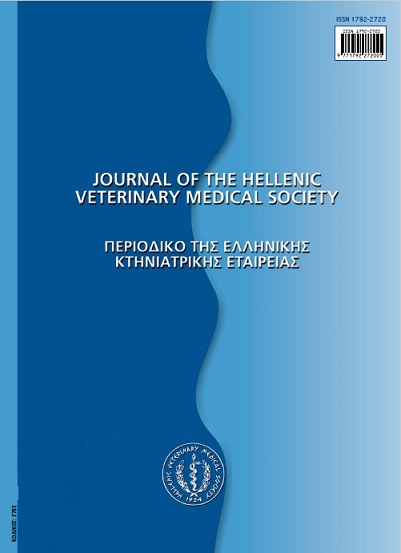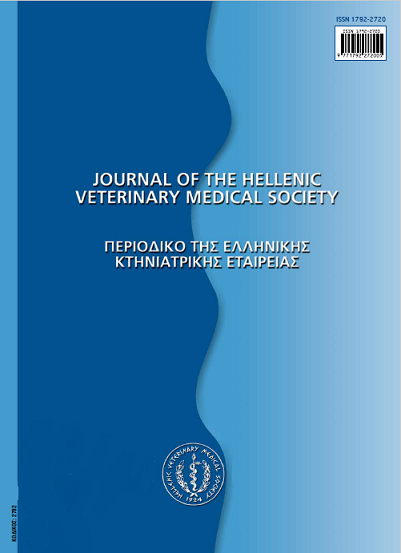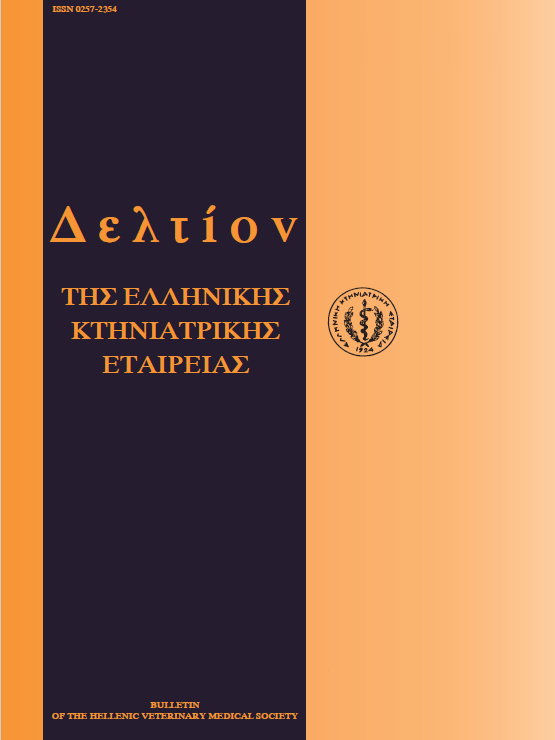An endeavor to improve longevity of cryopreserved equine sperm

Abstract
Exposure of sperm cells to the oxidative stress pending hypothermic storage of semen has been suggested to be responsible, in part, for the decline of their motility and fertility. This study was conducted to evaluate the in-vitro effects of antioxidants (AOs) and / or caffeine on longevity of cryopreserved stallion spermatozoa. Aliquots from the gel-free fraction of semen ejaculates (n=12), collected from 5 Arabian stallions (9-18 years old) of unknown sperm freezability, were mixed 1:1 with a Tris-egg yolk extender (TEYE), centrifuged at 500 χ g for 5 min and sperm cells were frozen in the form of 0.25-ml concentrated pellets after 2-step addition of TEYE supplemented with or without AOs (0.50 mg /ml Na pyruvate, 1 mg / ml Na thiosulfate, 5 mg / ml bovine serum albumin, 0.15 mg / ml zinc chloride and 0.50 mg / ml ferulic acid). The final pre-freeze concentrations of glycerol and sperm cells were 5% and 562-924 χ IO6 / ml, respectively. Frozen pellets from non-AOs and AOs-treated sperm were thawed in a Tris-citric acidglucose solution (40°C) containing 0, 0.49, 0.97 or 1.94 mg / ml caffeine and incubated (140-230 χ IO6 sperm / ml) at 30°C for 3 h. Sperm progressive motility (%) was assessed after centrifugation, before freezing and after 0, 1, 2 and 3 h of thawing. The results revealed significant (P<0.05) effects of sperm treatments only on post-thaw motility. Neither AOs alone nor caffeine alone could significantly ameliorate the maintenance of sperm motility. AOs plus 0.97 or 1.94 mg / ml caffeine were the superior supplements in improving the longevity of stallion spermatozoa.
Article Details
- How to Cite
-
KCHALIFA, T., WAHEED, M. M., & LYMBEROPOULOS (Α.Γ. ΛΥΜΠΕΡΟΠΟΥΛΟΣ) A. G. (2017). An endeavor to improve longevity of cryopreserved equine sperm. Journal of the Hellenic Veterinary Medical Society, 57(3), 195–204. https://doi.org/10.12681/jhvms.15039
- Issue
- Vol. 57 No. 3 (2006)
- Section
- Research Articles
Authors who publish with this journal agree to the following terms:
· Authors retain copyright and grant the journal right of first publication with the work simultaneously licensed under a Creative Commons Attribution Non-Commercial License that allows others to share the work with an acknowledgement of the work's authorship and initial publication in this journal.
· Authors are able to enter into separate, additional contractual arrangements for the non-exclusive distribution of the journal's published version of the work (e.g. post it to an institutional repository or publish it in a book), with an acknowledgement of its initial publication in this journal.
· Authors are permitted and encouraged to post their work online (preferably in institutional repositories or on their website) prior to and during the submission process, as it can lead to productive exchanges, as well as earlier and greater citation of published work.




